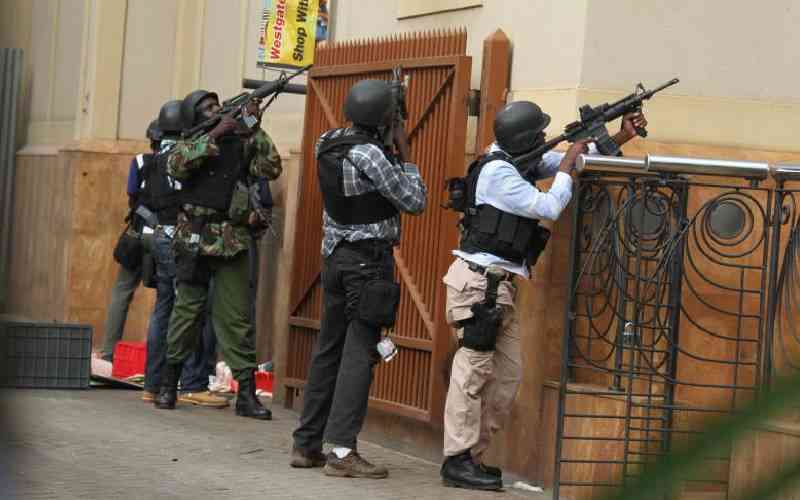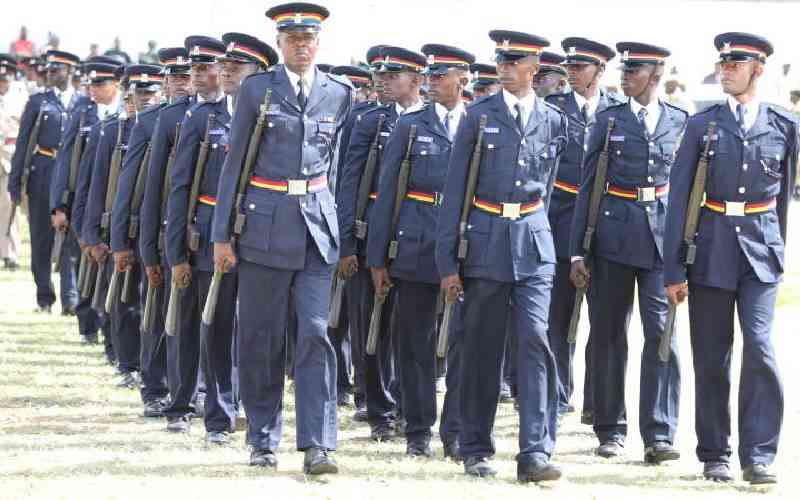By Ally Jamah
Kenya: An improvised explosive device (IED) is a homemade bomb designed to kill, injure and incapacitate people. IEDs consist of conventional military ammunition or bombs but are normally designed from non-military components.
According to bomb experts in the Kenya Army Corps of Engineers, an IED has four components including a firing system (like a mobile phone or two parallel metals), a power source (like battery or any electrical charge), initiators (a small but highly sensitive explosive) and the main charge (explosive material like bomb, fuel, metal or chemicals).
There are seven common types of IEDs including victim-operated ones that are set off accidently when an innocent person steps on the them unknowingly. Usually, they are made of two metal plates, which complete the electrical circuit that sets off the bomb when they are either stepped on or pulled.
IEDs can also be remote-detonated. Such are triggered using a remote control or a mobile phone. Military bomb experts believe that some explosions seen in the country were of this type.
IEDs can also be packed into vehicles which are then rammed into targets to explode. IEDs can be carried by suicide bombers when they strap them in jackets around their torso. Once they reach their target, they set off the bomb by pulling on a trigger usually held in their hands.
IEDs can be made from military-grade ordinance such as grenades, mortar bombs and projectile. Time-based IEDs explode at a certain time in order to achieve maximum impact.
As for suicide-bombers, the experts advise Kenyans to be on the lookout for tell-tale signs such as bulky and inappropriate clothing for instance heavy coats during hot weather. Their mid-section may appear rigid. They may also appear uneasy, including having shifty eyes.
Most Kenyans incorrectly believe that keeping the country secure from terrorist activities is only the work of police and other security agencies, however the officers emphasise that such attitude makes the work of terrorists easier.
“The security forces can’t be everywhere to keep an eye on terrorists. For security to be effective and sustainable, it is individual Kenyans who must play their part by being extra vigilant and reporting suspicious activities to the police,” says Captain Arthur Ang’iela of the Kenya Army Corps of Engineers.
He adds: “ The best strategy against terrorist attacks using IEDs is to prevent them from occurring in the first place rather than responding after they have happened. That’s why we want Kenyans to play their part in preventing such attacks.
“The awareness, skills and knowledge associated with IEDs ensure that the general public, business enterprises, working environments and social places continue to operate with greater degrees of safety,” he says.
 The Standard Group Plc is a
multi-media organization with investments in media platforms spanning newspaper
print operations, television, radio broadcasting, digital and online services. The
Standard Group is recognized as a leading multi-media house in Kenya with a key
influence in matters of national and international interest.
The Standard Group Plc is a
multi-media organization with investments in media platforms spanning newspaper
print operations, television, radio broadcasting, digital and online services. The
Standard Group is recognized as a leading multi-media house in Kenya with a key
influence in matters of national and international interest.
 The Standard Group Plc is a
multi-media organization with investments in media platforms spanning newspaper
print operations, television, radio broadcasting, digital and online services. The
Standard Group is recognized as a leading multi-media house in Kenya with a key
influence in matters of national and international interest.
The Standard Group Plc is a
multi-media organization with investments in media platforms spanning newspaper
print operations, television, radio broadcasting, digital and online services. The
Standard Group is recognized as a leading multi-media house in Kenya with a key
influence in matters of national and international interest.









